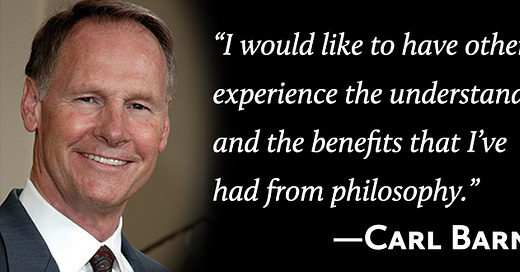The Times Smiles and Sneers at Carl Barney, Ayn Rand, and Private Colleges
Defending Individualism Amidst Media Misrepresentation
A recent New York Times article titled “An Ayn Rand Acolyte Selling Students a Self-Made Dream” discusses private-college mogul Carl Barney’s business successes and philanthropic ventures, and does so with less hostility than one might expect.
The article is worth reading for a few nuggets of wisdom from Mr. Barney, a peek at his principled approach to c…
Keep reading with a 7-day free trial
Subscribe to The Objective Standard to keep reading this post and get 7 days of free access to the full post archives.





